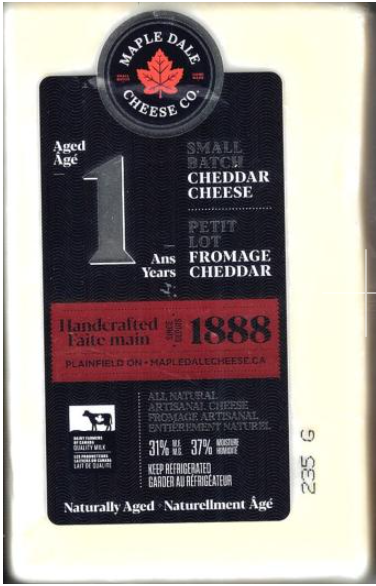According to the CFIA, Maple Dale Cheese (Plainfield, Ontario) has recalled Maple Dale Cheese Co. branded 1-Year Old Cheddar Cheese products from the Canadian marketplace due to suspected Listeria monocytogenes contamination. The CFIA reports that Maple Dale Cheese Co. branded 1-Year Old Cheddar Cheese, sold in 235-gram clear plastic vacuum-packed packages, and Maple Dale Cheese Co. branded 1-Year Old Cheddar Cheese, sold in 235-gram clear plastic vacuum-packed are subject to the recall. These Cheddar Cheese Products were distributed and sold in the Canadian province of Ontario. @ https://recalls-rappels.canada.ca/en/alert-recall/maple-dale-cheese-co-brand-1-year-old-cheddar-recalled-due-listeria-monocytogenes




